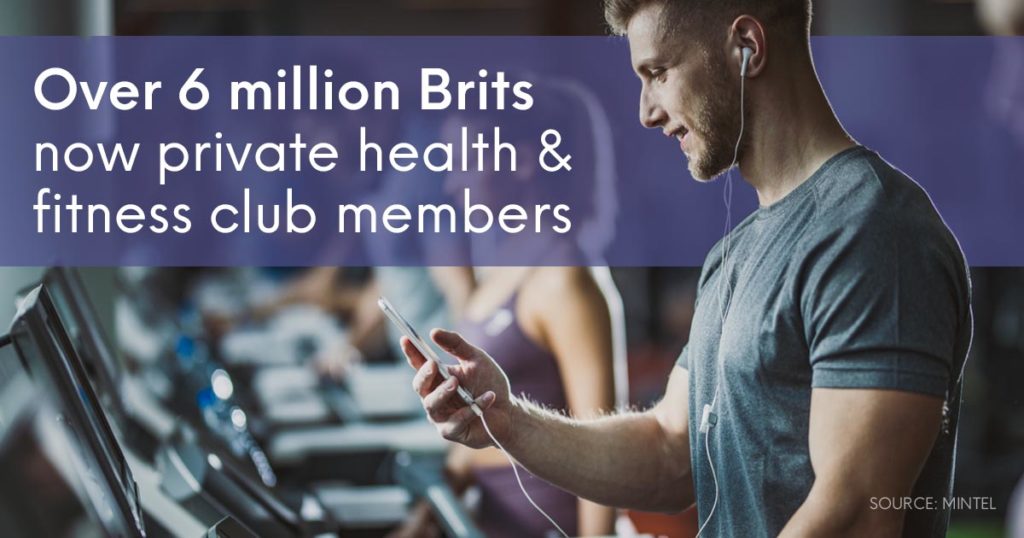Available 24 hours a day, Mintel’s global public relations team is pleased to provide accredited journalists with access to our research, arrange interviews with our expert analysts and share the latest insights across categories and countries.
It’s that time of year again when Brits resolve to up their fitness regime, and according to the latest research from Mintel, those choosing to sweat it out in the gym will not be alone, as private health and fitness club memberships topped 6 million last year.
Over the last five years, private health and fitness gym membership has leapt up 15%, with the number of members rising from 5.3 million in 2014 to an impressive 6.1 million in 2019. Meanwhile, total revenue for the UK private health and fitness club market is estimated to have reached nearly £3.4 billion in 2019, growing a healthy 4.1% since 2018.
Mintel research reveals that health and fitness clubs are one of the fastest-growing leisure segments. In fact, some 18% of UK adults currently use a private health and fitness club, compared with 15% in 2018.
Lauren Ryan, Mintel Leisure Analyst, said:
“The rise of lower-cost options and increased locations has made private gyms an accessible form of leisure, while a greater focus by consumers on healthier living and exercise is also providing a boost to the sector. The convenience of more options close to work and home, with more flexible off-peak options available from the leading brands, has boosted demand, while competition has driven prices down. While membership numbers are set to continue to increase, the competition for new customers will drive down average fees and limit revenue growth over the next five years.”
We’re all in it together! Most say group classes help them put in more effort
According to Mintel research, classes are a key reason why many attend private gyms. Almost three in five (58%) Brits* say classes are the main reason they go to a health and fitness club, while 64% say group classes help them put in more effort. Furthermore, 75% of consumers say the instructors play a key role in how much they like a club.
Overall, it seems Brits are getting value from their memberships as the vast majority of those who belong to private health and fitness clubs are using them regularly. Just 4% of members are using them less often than once a week, while over six in 10 (62%) are using the club at least three times per week. For those looking to boost membership further, 28% of consumers* say the ability to track their progress would make them join or attend more often, while 25% would be motivated to attend more if they were rewarded for reaching goals.
Finally, the prospect of working out on machines that haven’t been wiped down after use, together with dirty changing rooms, is amongst the biggest gym deterrents, with eight in 10 Brits (81%) saying they would be put off using certain clubs because of a lack of cleanliness.
Lauren Ryan, Mintel Leisure Analyst, said:
“Classes are particularly important for fitness clubs, with people seeking variety and friendly instructors. Online fitness services and workout apps mean consumers have direct access to leading experts and celebrity trainers, with classes live-streamed or available to download 24/7. However, the need for personal interaction and more personalised guidance provides health and fitness clubs with a strong opportunity if they can retain high-quality instructors and personal trainers. With consumers tending to take a more holistic approach to their total wellbeing, there are good opportunities for clubs to provide their customers with help outside of just physical fitness, including nutrition and mental health.”
* Users aged 16+ who are currently a member/are not a member but would consider joining a private health and fitness club
